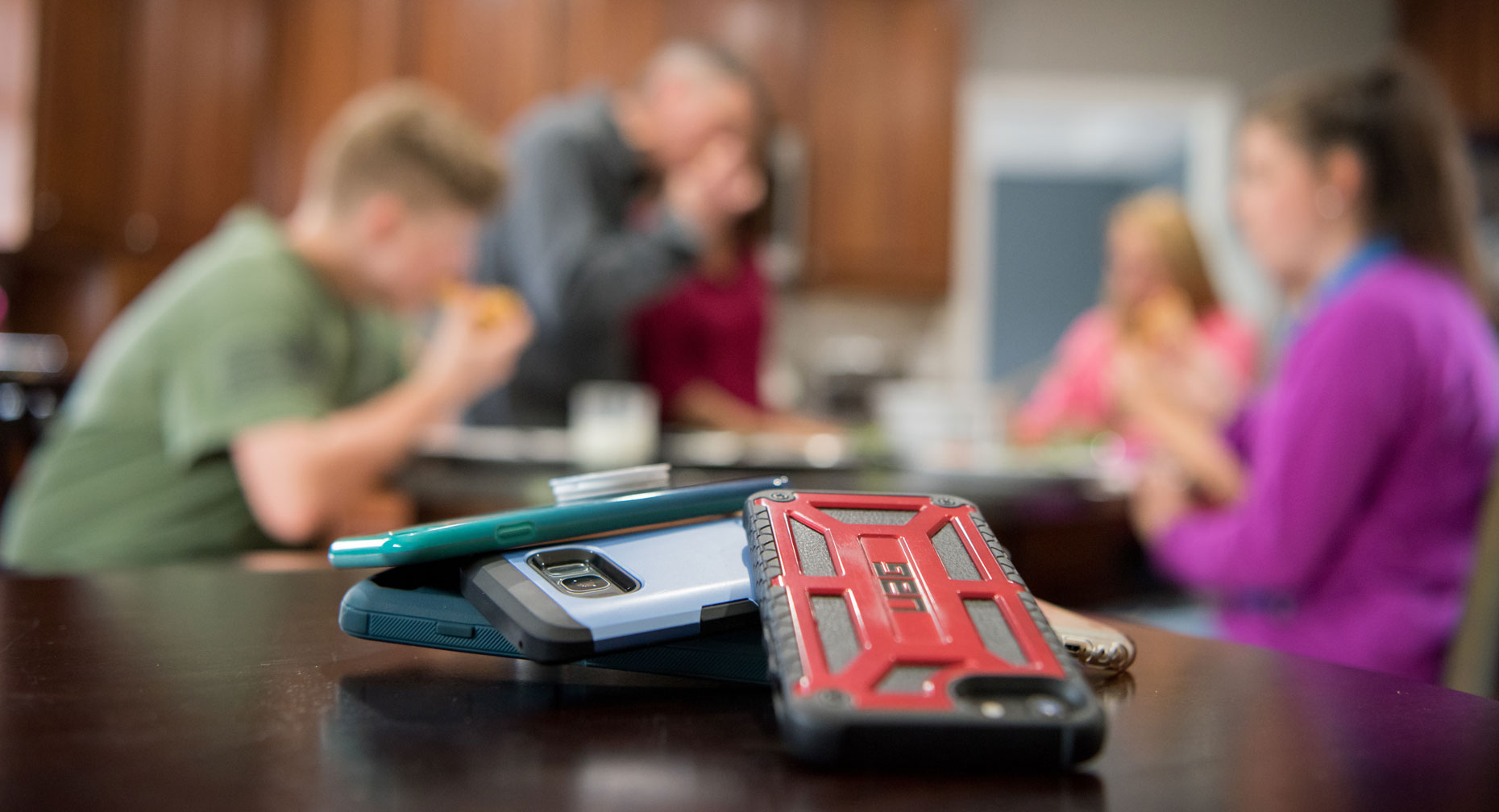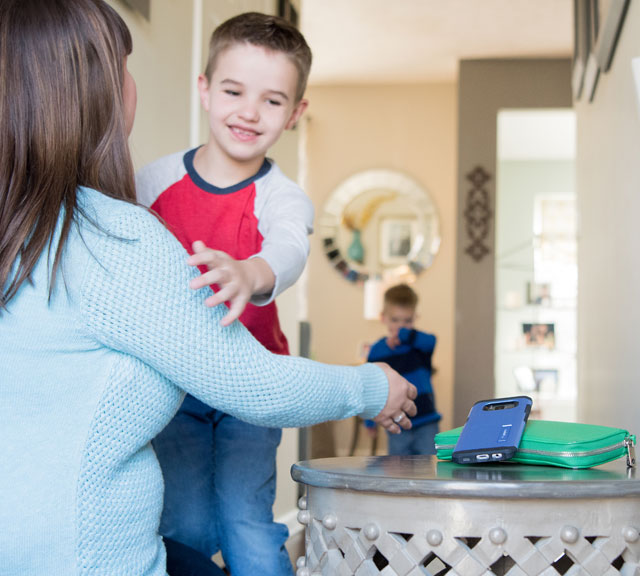Join the No-Phub Club: Love and Smartphones in the 21st Century

Find Your Perfect Match
Answer a few questions and we'll provide you with a list of primary care providers that best fit your needs.
Chances are you’re among the 77 percent of U.S. adults who own a smartphone. For all the benefits they provide, our shiny little pocket wonders have also delivered their share of trouble and strife, ranging from car crashes to sleep deprivation (binge-watching in bed, anyone?) to distraction, anxiety and concerns about how these devices might be affecting our personal relationships.
What is Phubbing?
Combine “phone” and “snubbing” and you get a totally 21st century word – phubbing – that means to pay more attention to your smartphone than to the person you're with. We've all probably done it, and certainly others have done it to us.
It's one of the most common social gaffes of the iPhone Age. You're on a date, or chatting with a friend over lunch, or talking with your child about their school day, and suddenly, in the midst of the conversation, out comes the other person's phone, and, with a quick tappity-tap, they're signed in and staring at the little screen with rapt attention. The engaging interpersonal connection you were enjoying just seconds before has flown, and the two of you might as well be in different rooms. Or in different cities.
What's the Problem?
Beyond the etiquette-related aspects of phubbing (no one likes to be snubbed!), our fascination with our phones may well be a cause of friction in our relationships.
"Our phones can negatively affect our relationships when they distract us from being in the moment with the people near us — whether that's our significant other, our family members or our friends," says Cassie Conley, a therapist at Samaritan Behavioral Health. Real-world interactions with other people are extremely important for our psychological and emotional health as social beings. When we opt to spend time checking our phone notifications or cruising our social media accounts instead of being present to the people in our lives, we miss out on important opportunities for nurturing our connections to loved ones and others.
"Our phones can negatively affect our relationships when they distract us from being in the moment with the people near us.
Why Do We Do It?

Conley says the urge to lose ourselves in our smartphones rather than engage with the people around us can stem from any number of causes, including:
- Avoiding conflict: "Sometimes, when a controversial topic or other source of conflict arises, we may wish to avoid a confrontation," says Conley. "So we might prefer to reach for the phone instead of discussing the conflict and addressing what's going on. In that way, issues can be left unresolved, and we may not have the discussion we really should have in order to resolve the problem."
- Avoiding discomfort: In certain situations, the phone can act as a security blanket. "For instance," Conley says, "we may feel uncomfortable at a party and reach for our phones as a way to avoid those uncomfortable feelings."
- FOMO (Fear of Missing Out): "We latch on to social media for the sense of connection it gives us," says Conley. "But grabbing our phone every time a notification goes off, to see if someone has messaged us or posted a picture of us can keep us from connecting with the people we're with at that moment."
- Boredom: One thing our phones are not is boring. It can be all too easy to fall into the habit of avoiding tedious real-world situations or lulls in the conversation by turning to the myriad exciting diversions instantly available in the smartphone.
Whatever our reasons for turning to our phones instead of giving our full attention to the people we're with, the end effect is the same, says Conley. "We limit our social experience and decrease the connectedness that we want with people."
What Can Be Done?
If you've noticed the effects of phubbing intruding on your relationships, there are steps you can take to help you conquer bad smartphone habits and put the people in your life front and center.
- Express how you feel: Conley recommends letting the other person know how you feel about being phubbed. You can break it to them gently, saying something like, "I feel like we're spending too much time on our phones. I find myself wanting to have more quality time with you.”
- Set limits together: If phubbing is a problem with your significant other, work together to develop a strategy. Put time limits on phone use while you're together, perhaps setting aside times when the devices are completely put away.
- Establish good habits: Set the expectations for responsible use of phones — for children and other loved ones. For instance, you might choose to discourage their use during dinner.
- Stay aware: Be cognizant of how often, and why, you check your phone. Look for opportunities to cut back on its use, and consider other options for fighting boredom or discomfort.
- Turn off push notifications: Most apps on your smartphone allow you to turn off notifications; this will eliminate a good number of the urgent-seeming distractions beckoning from your device.
Conley says these strategies can really work. "I've worked with couples who have successfully changed their habits," she said. "It can be hard at first. We're so used to just grabbing for our phones whenever we want. It can take a while to get accustomed to doing without the phone sometimes. But couples who try these things have reported that they're talking more — their communications have improved."
Find Your Perfect Match
Answer a few questions and we'll provide you with a list of primary care providers that best fit your needs.
Source: Cassie Conley, Therapist, Samaritan Behavioral Health; American Psychological Association; Pew Research Center; National Safety Council



.tmb-card-head.webp?sfvrsn=680c0961_8)

